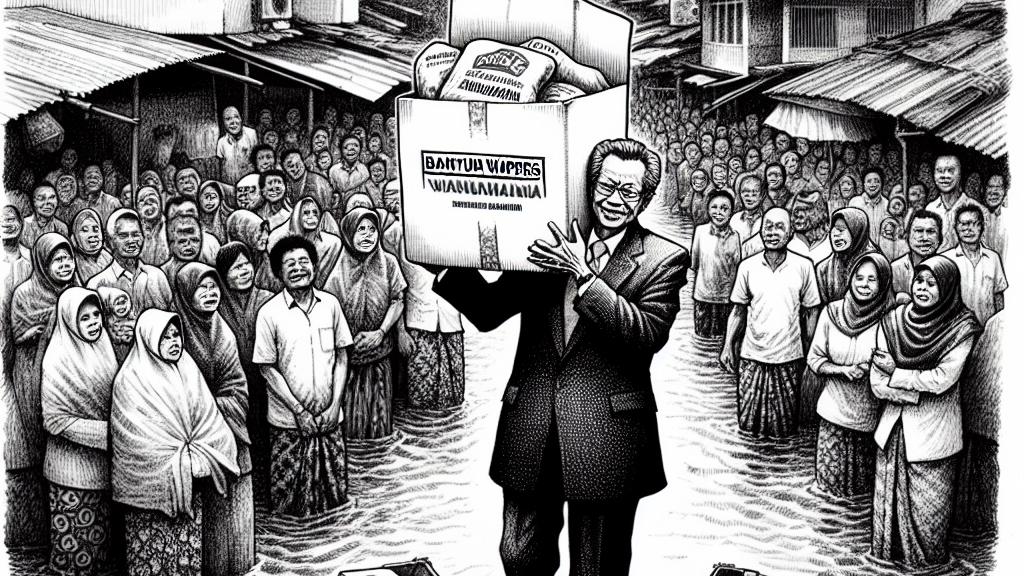Gibran's Aid Efforts and Political Strategy in Indonesia
Overview
- Gibran Rakabuming Raka has been inaugurated as Indonesia's Vice-President.
- His method of distributing aid, prominently branded with his name, has stirred significant public controversy.
- Critics frequently compare Gibran's tactics to the populist approaches of his father, former President Joko Widodo.

A Familiar Political Scene
Imagine the urgent scene in Jakarta’s flood-stricken Kampung Melayu, where a community desperately needed assistance. On November 28, Vice-President Gibran Rakabuming Raka arrived, intent on providing much-needed aid. Armed with packages of essentials like rice, sugar, and cooking oil, he presented them to residents—but there was a catch. Each package boasted the eye-catching label, 'bantuan wapres Gibran' (Vice-President Gibran’s aid). Immediately, social media lit up with criticism, with many users claiming that this act was more about Gibran’s image than genuine compassion. Comments like 'Is this really about aid, or just a way to make himself look good?' flowed through platforms like X, echoing discontent reminiscent of criticisms aimed at his father, Joko Widodo. The pressing question arose: when does helping others become overshadowed by self-promotion?
Echoes of Populism
Gibran's self-branded outreach has ignited a lively debate over what authentic political engagement looks like in Indonesia. Critics point out that he seems to be relying on a familiar populist strategy, reminiscent of Joko Widodo’s signature 'blusukan'—impromptu visits designed to showcase the leader’s connection with the people. For instance, while such appearances feel supportive, many wonder if they serve as mere photo ops. As one social commentator articulated, 'True leadership shouldn't be about being seen; it should be about making a difference.' This raises an essential issue: although visibility is important during crises, incessantly placing one's name on relief efforts can compromise their sincerity. The essence of aid should transcend branding; it should primarily be about the needs of the recipients.
Navigating a Complex Political Landscape
As Gibran steps into his new role, he is tasked not just with carrying on a legacy but also with carving out his identity in Indonesia’s evolving political milieu. Just hours after his inauguration, he welcomed international dignitaries, including the Prime Minister of South Korea, showing his dedication to strengthening diplomatic relations. Yet, beyond politics, his involvement in crucial infrastructure projects, such as the ongoing MRT expansion, represents an active commitment to addressing urban challenges. Balancing these responsibilities poses a dual challenge; Gibran must prove that he is an effective leader while remaining attuned to the public's voiced concerns. As he moves forward, the crux of his challenge lies in redefining what leadership means in a post-Widodo Indonesia—grounded in authentic community connection yet savvy enough to manage public perception. Through this lens, Gibran’s actions may illustrate a new paradigm, one that emphasizes substance alongside style in political leadership.

Loading...